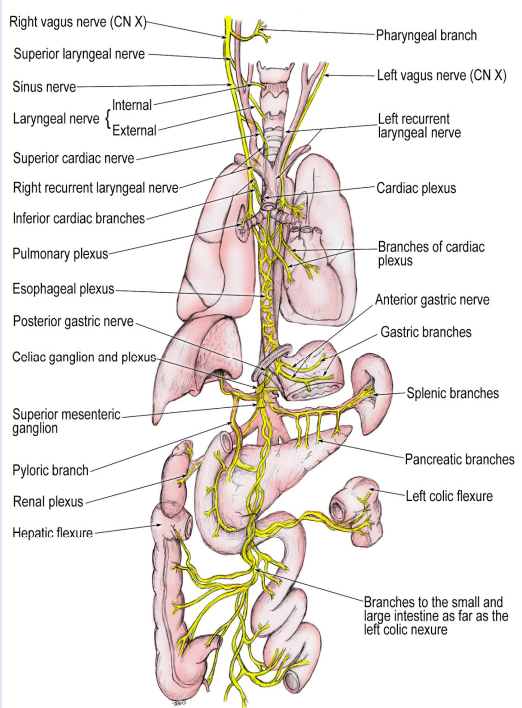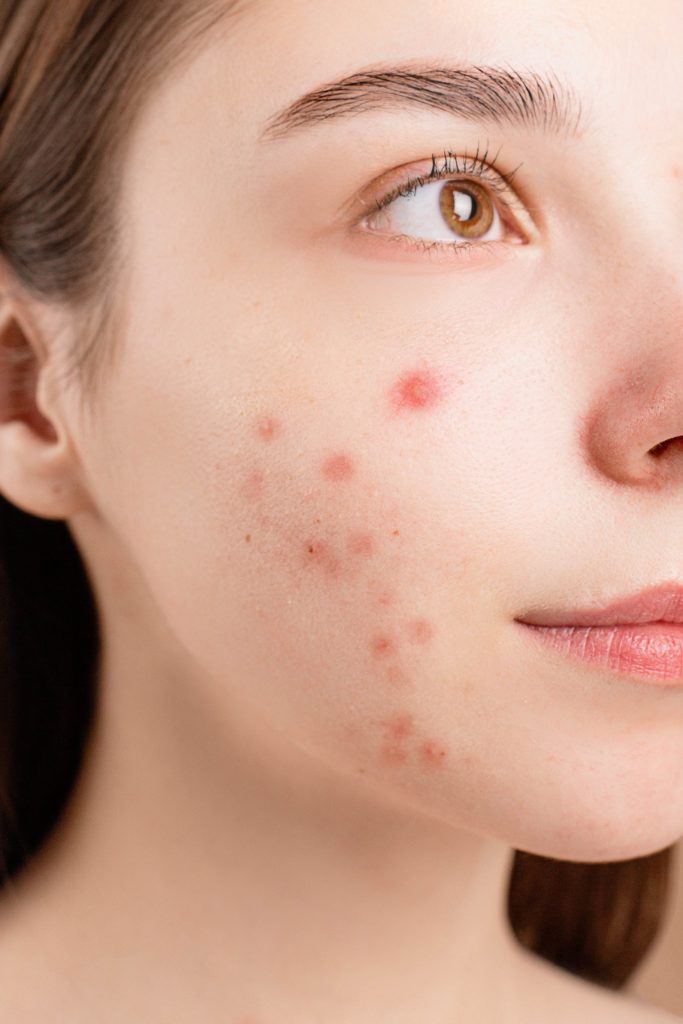Gut health is one of the biggest factors effecting your overall health. It’s directly connected to things like diet and mental health, and it’s crucial to understand how your habits and daily routine impact it. If you want to learn how to improve your gut and, in turn, your total well-being, keep reading!
The Gut and the Gut Microbiome
The gastrointestinal (GI) tract is a body system that includes the mouth, pharynx (throat), esophagus, stomach, large intestine, small intestine and anal canal. The GI tract is also often referred to as ‘the gut,’ which is responsible for digesting and absorbing nutrients from the food we eat.
The term ‘gut microbiome’ refers to the collection of microbes that are spread throughout the gastrointestinal tract. Microbes are tiny organisms that can’t be seen with the naked eye, including bacteria, fungi and viruses.
These microbes are key players in the fermentation of indigestible fiber. Fiber is extremely important to human health because it supports cholesterol management, blood sugar regulation, immunity, brain health, reduction of inflammation, prevention of chronic disease and so much more.
The fermentation process helps the good bacteria to multiply and diversify. It also allows the bacteria to produce acids that support satiety, nutrient absorption and increased energy.
These microbes are also responsible for protecting the body from “bad” microbes, reducing the effects of bacterial toxins, and promoting detoxification of cancer-causing agents.
Why is Gut Health Important?
The health of the gut and gut microbiome is important because it can impact many aspects of overall health. Gut health has been linked to:
- Immunity
- Sleep Quality
- Mental Health
- Endocrine (hormone) Disorders
- Gastrointestinal (stomach) Disorders
- Autoimmune Disease
Many people don’t know that the gut is connected to the brain by the vagus nerve. It runs from the brain stem down to the abdomen, with connections to several body systems, including the gut. It’s the primary route that the gut bacteria use to transmit information to the brain.
Because of this connection between the brain and gut, irritation or pain in the GI system can trigger mood instability and affect issues like anxiety, depression, autism, etc.
It’s also been repeatedly proven that those with less diversity of healthy microbes have higher rates of inflammatory bowel disease, arthritis, diabetes, eczema, obesity, and other chronic diseases.
Poor gut health has also had a consistent link to autoimmune disease. The gut microbiota are responsible for keeping the lining of the intestinal walls healthy. When there is not enough healthy microbiota, a condition called leaky gut can develop. This can allow toxic waste and bacteria to ‘leak’ out of the gut and into the bloodstream, leading to immune abnormalities and, eventually, an autoimmune disorder.
Gut health is vastly more important than many people realize, but how can you tell if your gut microbiome is out of whack?
Signs of Poor Gut Health
There are many symptoms that let you know if your gastrointestinal system is in trouble. Being able to recognize the symptoms is the first step toward better health.
Upset Stomach
If you experience consistent and painful stomach aches, this could be a sign that your gut isn’t in optimal health. Having recurring stomach aches may be caused by:
- Slow gut transit time / constipation
- Food intolerances
- Inflammation
- Urinary Tract Infections (UTIs)
- More serious conditions, such as polycystic ovarian syndrome (PCOS)
Sugar Cravings
If you’re the person that has to have a sugary sweet after every meal to satisfy your sweet tooth, it could mean that your microbiome is out of balance.
Sugar and artificial sweeteners feed the bad bacteria in your gut, allowing them to strengthen and multiply. In turn, the bad microbes will ‘crave’ the sugar they need to stay alive.
This article from the National Institutes of Health describes how gut flora can influence eating behaviors, causing cravings and unhealthy eating habits.
Unintentional Weight Changes
The health of the gut has a huge impact on weight changes, too. If you’ve been experiencing unintentional weight gain or weight loss, it may be time to take a look at your gut health.
Bad gut microbiota can cause insulin resistance, increased appetite and food intake, and an imbalance in glucose levels. All of these can lead to excess weight gain if they’re not addressed.
However, if bacteria are growing excessively in places where they shouldn’t be, such as the small intestine, this can lead to weight loss. The overgrowth of bacteria eats all of the nutrients before it has a chance to absorb, depriving the body of what it needs to maintain healthy weight.
Skin Issues
Do you struggle with skin issues like acne, eczema, rashes or rosacea? This could be a sign of an unhealthy gut.
When the count of good microbes in our gut gets low, the lining of the intestinal walls start to thin. This causes things like food particles and toxic waste from the gastrointestinal tract to leak into the bloodstream.
As the blood circulates through the body, the food particles and waste can make its way into other systems of the body. If it makes its way into the lymphatic system, it can end up deposited in the skin, causing acne and other skin ailments.
Mood Instability
Because of the gut’s connection to the brain via the vagus nerve, mood or emotional instability can often be a side effect of poor gut health.
The vagus nerve is the gut’s main line of communication to the brain. When the microbiome is disturbed or out of balance, it sends signals to the brain. These signals can have an affect on mood and emotional state.
Though it may happen without realization, any pain or imbalance in the gut can have a direct impact on mental health. It may exacerbate symptoms of anxiety or depression, and can also have an effect on mental clarity and focus.
Tips to Improve Your Gut Health
So what can you do to alleviate your symptoms and get your gut back to optimal health? Here are 7 helpful tips to help you improve your digestive health.
Drink Enough Water
You’ve heard it before, but here it is again: Drink. Your. Water! Water is vital for formation and transportation of food waste throughout the GI tract.
In general, most people need about 64 ounces (or eight 8 oz glasses) of water a day. This will not only help keep the rest of your body hydrated, but give a boost to your digestive tract, too!
Increase Your Fiber Intake
One of the biggest reasons for poor gut health is having a low fiber intake. Fiber is essential for creating a healthy microbiome.
The benefits of increasing fiber intake are astounding. These benefits include:
- Increased mineral absorption
- Cholesterol management
- Blood sugar regulation
- Weight management
- Better immunity
- Reduction of inflammation in the body
- Prevention of chronic disease
The fiber fermentation process also provides the good gut bacteria with nutrition they need to multiply and diversify. So by eating more fiber, you’re promoting the growth of healthy microbes.
You can get more fiber by taking an organic psyllium (seed whose husk is a great source of dietary fiber) supplement, or by simply increasing the amount of plant foods you eat. The Academy of Nutrition and Dietetics recommends that women should have 25 grams of fiber a day, and men should have 38 grams of fiber a day. Some foods that are rich in fiber are:
- Sweet potato
- Spinach
- Broccoli
- Pears
- Raspberries
- Pumpkin
- Almonds
- Bananas
Have a Healthy Food Diversity
Food diversity is also a very important factor in maintaining good gut health. There are different strains of good bacteria needed in order to break down and optimize the nutrients in different foods. Eating many types of foods (fruits, vegetables, grains, dairy, etc.) will help new, good bacteria to grow in the gut.
It’s very important to remember to eat foods that will promote the good microbes in the gut. Eating healthy, whole foods, like fruits and vegetables, should be the backbone of your diet. Good sources of protein, like chicken and fish, and healthy sources of fat, like nuts and seeds, should also make up a good portion of your diet.
Consume Fermented Foods
Consuming fermented foods is also very beneficial to the health of good microbes in the gut.
The process of fermentation feeds and creates the good bacteria in the gut. This means that when you’re consuming foods that are already fermented, you’re feeding the bacteria already in your gut and adding to the collection. These foods will help your microbiome grow in strength and diversity.
Some great examples of fermented food are:
- Yogurt
- Sauerkraut
- Miso Soup
- Kimchi
- Kombucha
Take Probiotic & Prebiotic Supplements
Essentially, probiotics are the live beneficial bacteria (found in fermented foods), and prebiotics are the type of fiber only digestible by good gut microbes (found in fruits, veggies and legumes).
You can get both of these things by adding more whole foods and fermented foods to the diet, but, for some, adding them in via supplements may be necessary.
There are a variety of different probiotic and prebiotic supplements out there, so be sure to do your research before deciding which brand to choose. You can also find these types of supplements in many health food stores.
Work on Stress Management
If you’ve ever had an upset stomach accompany a stressful bout of anxiousness, you know how closely tied the gut-brain relationship is. Our stomach reacts to stressful situations in the brain the same way that the brain reacts to painful situations in the gut.
Emotional imbalance and chronic stress can eventually cause the intestinal tissue to be compromised. This is why stress management can be so vital to maintaining good GI health.
Some methods and practices to help with stress management include:
- Breathwork
- Meditation & prayer
- Journaling
- Yoga or movement therapy
Get Restful Sleep
Sleep is one of the four pillars of health, so it’s clear just how important it is to having a healthy body. In relation to gut health, the quality of sleep we get can seriously affect digestive health, and vice versa.
Some studies have shown that even partial sleep deprivation can alter the gut microbiome in as little as 48 hours. In turn, high sleep quality is associated with more microbe diversity and improved cognitive function.
You can improve your sleep quality by doing things like:
- Avoiding blue and white light before bed (TV screens, phone screens, white light fixtures, etc.)
- Taking a warm shower or bath
- Reading a book
- Decreasing the temperature inside your home
- Taking a sleep aid supplement, such as magnesium
To Sum it All Up
It’s clear just how intricately tied gut health is with the rest of our body. Healing the gut and maintaining a good balance in the microbiome is crucial for total body wellness.
Skip the processed, low-fiber foods and pack your diet full of fruits, vegetables and high quality sources of protein and fat. Remember to drink your water, get high quality sleep and take time to de-stress.
If you’d like to learn even more about gut health, check out some of the health and wellness classes we offer under the ‘Programs’ tab!












